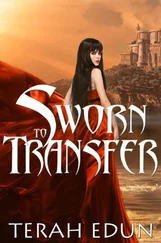He marched me back to the burh and checked my story with Aelfgifu's harassed steward. When the steward confirmed who I was, Edgar spat deliberately — the gob of spittle just missed me — and announced, 'We'll see about that then.'
This time we returned to the kennels and Edgar lifted the latch on the low gate which led into the dog-run. Instantly a hysterical brown, white and tan cascade of tail-wagging confusion swirled forward and engulfed us. The dogs barked and howled, though whether with enthusiasm or hunger I could not tell. Some leaped up at Edgar in affection, others pushed and shoved to get closer, a few cringed back, or ran off into the corner and defecated in their excitement. The kennel smelled abominable, and I felt a sharp pain in my calf where one mistrustful dog had run round behind me to give me an experimental bite. Edgar was completely at ease. He plunged his hands into the heaving mass of dog flesh, petting them, rubbing ears fondly, calling their names, casually knocking aside the more exuberant animals which tried to leap up and lick his face. He was in his element, but for me it was a vision of the abyss.
'This is where you will work,' he said bluntly.
I must have looked aghast, for he allowed himself the glimmer of a smile. 'I'll show you your duties.' He crossed to the far side of the dog-run, where a long, low shed was built against the fence. He dragged open the ill-fitting door and we went inside. The interior was almost as bare as the hawk shed, only this time there was no sand on the earth floor and instead of bird perches, a wide wooden platform had been constructed down one side of the building. The platform was made of rough wooden planks, raised about a foot above the ground on short posts. Its surface was covered with a thick layer of straw, which Edgar pointed at. 'I want that turned over daily, so that it's well aired. Pick up any droppings and put them outside. When you've a sackful of turds, you'll be carrying it to the tannery for the leather-makers. Nothing like a strong solution of dog shit to soften the surface of hides. Then every three days, when the straw is too soiled, you change all the bedding. I'll show you later where to find fresh straw.'
Next he pointed out three low troughs. 'Keep these topped up with drinking water for the dogs. If they get fouled, you're to take them outside and empty them — I don't want the floor in here any more damp than it already is - then refill them.' As he made his remark about the damp floor, he glanced towards a wooden post hammered into the ground about halfway along the shed. The post was wrapped with straw and there was an obvious damp patch around it. I realised it was a urinating post. 'Every three days you change that straw as well. Let the dogs out into the run first thing every morning. That's when you will change their straw bedding. They're to be fed once a day - mostly stale bread, but also meat scraps from the main kitchen, whatever is left over. You are to check through the scraps to make sure that there's nothing harmful in the swill. If any dog is sick or off-colour, and there's usually one or two, you're to let me know at once.'
'Where will I find you?' I asked.
'I live in the cottage opposite the hawk shed. Behind my house you'll find the lean-to where the straw is kept. If I'm not at home, probably because I'm out in the forest, check with my wife before you touch any of the stores. She'll keep an eye on you to make sure that you're doing your job thoroughly. Any questions?'
By now we had re-emerged from the dog shed and were back at the entrance to the dog-run. 'No,' I said, 'you've made everything very clear. Where do I sleep?'
He gave me a look of pure malice. 'Where do you expect? With the dogs, of course. That's the right place for a kennelman.'
My next question was on the tip of my tongue, when the expression on his face decided me not to give him the satisfaction of asking it. I was going to enquire, 'What about my food? Where do I take my meals?' But I already knew the answer — 'With the dogs. You eat what they do.'
I was right. The next days were among the most vile that I ever spent and I have lived under some unspeakable conditions. I ate and I slept with the dogs. I picked out the better scraps from their food for my own meals, I caught their fleas and I spent a good deal of my time avoiding their teeth. I loathed them, and took to carrying a cudgel - which I hid under the dog platform whenever Edgar appeared — and used it to clout any dog that came too close to me, though some of the nastier ones still tried to circle round behind me and attack. The experience gave me ample time to wonder how on earth people could become fond of their dogs, least of all such unlovely hounds as these. In Ireland the clan chiefs had been proud of their wolfhounds, and I had understood why. Their dogs were resplendent, elegant animals, aristocratic with their long legs and haughty pace. But Edgar's pack was, to all appearances, a bunch of curs. Half the height of a wolfhound, they had short faces, sharp snouts and untidy fur. The predominant colour was a drab brown, though a few had patches of black or of tan, and one dog would have been all white if it had not kept rolling in the filthiness. It was incredible to me that anyone would take the trouble to keep a pack of them. Several months later I learned that they were known as 'Briton hounds' and their forebears had been gready valued as hunting dogs by those same Romans who had built the Wailing Street. My informant was a monk whose abbot was a sporting priest and ran a pack of them, and he told me that these Briton hounds were valued for their courage, their tenacity and their ability to follow the scent whether in the air or on the ground. How the dogs managed to follow a scent amazed me, for they themselves stank exceedingly. In an attempt to keep my purple tunic from being tainted, I took the precaution of hanging my faithful leather satchel from a peg in one of the upright posts, as high up as I could manage, for I knew for certain that, within hours, I reeked as much as my canine companions.
Edgar came to visit the kennel both morning and afternoon to check on me as well as his noxious hounds. He would enter the dog-run and wade nonchalantly through the riot of animals. He had an uncanny ability to spot any of them that were cut, scratched or damaged in any way. Then he would reach out and grab the dog and haul it close. With complete assurance he folded back ears, prised apart toes looking for thorns, and casually pulled aside private parts, which he called their yard and stones, to check that they were not sore or bleeding. If he found a gash, he produced a needle and thread, and with one knee pinned down the dog while he stitched up the wound. Occasionally, if the dog was troublesome, he would call on me to assist by holding it, and of course I got badly bitten. Seeing the blood dripping from my hand, Edgar gave a satisfied laugh. 'Teach you to stick your hand in his mouth,' he jeered, making me think instantly of the one-handed huscarl. 'Better than a cat bite. That'd go bad on you. A dog bite is clean and healthy. Or at least it is if the dog isn't mad.' The dog which had bitten me certainly didn't look mad, so I sucked at the puncture wounds left by its teeth and said nothing. But Edgar wasn't going to miss his opportunity. 'Do you know what you do if you get bitten by a mad dog?' he asked with relish. 'You can't suck hard enough to get out the rottenness. So you get a good strong barnyard cock, and strip off his feathers, all of them, until he is arse naked. Then you clap his fundament on the wound and give him a bad fright. That way he clenches up his gut and sucks out the wound.' He guffawed.
My ordeal would have lasted much longer but for the fact that I mislaid a dog on the fourth day. Edgar had told me to take the pack to a grassy area a few hundred paces from the kennel. There the animals were encouraged to chew the blades of grass for their health. During that short excursion I managed to lose track of the number of hounds I took with me, and when I brought them back into the dog-run I failed to notice that one was missing. Only when I was shutting the dogs up for the night and took a head count, did I realise my error. I closed the kennel door behind me, and walked back to the grassy area to see if I could find the missing hound. I did not call the dog because I did not know its name and, just as importantly, I did not want to alert Edgar to my blunder. He had been so hostile about the possible loss of a hawk that I was sure he would be furious over a missing dog. I walked quietly, hoping to spot the runaway lurking somewhere. There was no dog by the grass patch, and, thinking that the animal might have found its way to the back door of Edgar's cottage to scavenge, I went to check. Just as I rounded the corner of the little house, I heard a slight clatter, and there was Edgar.
Читать дальше








